even though the tape likely was made of this conversation last Summer sometime in Russia. And Many people who knew about this in government are now upset more wasn't done then.
However, one of the many problems was protecting this source until now who was in Russian government. So, obviously either the source is out of the Russian government now or they have been found out and they are now dead. I fully expect a movie to be made about whoever this person is or was some day.
By the way since O'Reilly is gone she is the most watched news Anchor now on any of the news channels: Rachel Maddow.
By the way, Putin's KGB attitude from the 1980s is one reason Russia and the U.S. are at odds like during the 1980s once again.
begin quote from:
Vladimir Putin - Wikipedia
https://en.wikipedia.org/wiki/Vladimir_Putin
Vladimir
Vladimirovich Putin is the current President of Russia, holding the
office since 7 May 2012. He was Prime Minister from 1999 to 2000,
President from ...
Vladimir Putin
From Wikipedia, the free encyclopedia
(Redirected from Putin)
| Vladimir Putin Владимир Путин |
|
|---|---|
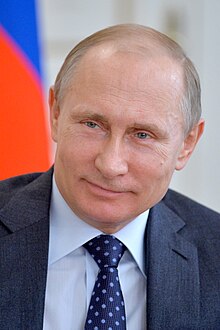 |
|
| 2nd and 4th President of Russia | |
| Assumed office 7 May 2012 |
|
| Prime Minister | Viktor Zubkov Dmitry Medvedev |
| Preceded by | Dmitry Medvedev |
| In office 7 May 2000 – 7 May 2008 Acting: 31 December 1999 – 7 May 2000 |
|
| Prime Minister | Mikhail Kasyanov Mikhail Fradkov Viktor Zubkov |
| Preceded by | Boris Yeltsin |
| Succeeded by | Dmitry Medvedev |
| 34th and 38th Prime Minister of Russia | |
| In office 8 May 2008 – 7 May 2012 |
|
| President | Dmitry Medvedev |
| First Deputy | Sergei Ivanov Viktor Zubkov Igor Shuvalov |
| Preceded by | Viktor Zubkov |
| Succeeded by | Dmitry Medvedev |
| In office 16 August 1999 – 7 May 2000 Acting: 9 August 1999 – 16 August 1999 |
|
| President | Boris Yeltsin |
| First Deputy | Nikolai Aksyonenko Viktor Khristenko Mikhail Kasyanov |
| Preceded by | Sergei Stepashin |
| Succeeded by | Mikhail Kasyanov |
| Chairman of the Council of Ministers of the Union State | |
| In office 27 May 2008 – 18 July 2012 |
|
| Preceded by | Viktor Zubkov |
| Succeeded by | Dmitry Medvedev |
| Leader of United Russia | |
| In office 7 May 2008 – 26 May 2012 |
|
| Preceded by | Boris Gryzlov |
| Succeeded by | Dmitry Medvedev |
| Secretary of the Security Council | |
| In office 9 March 1999 – 9 August 1999 |
|
| President | Boris Yeltsin |
| Preceded by | Nikolay Bordyuzha |
| Succeeded by | Sergei Ivanov |
| Director of the Federal Security Service | |
| In office 25 July 1998 – 29 March 1999 |
|
| President | Boris Yeltsin |
| Preceded by | Nikolay Kovalyov |
| Succeeded by | Nikolai Patrushev |
| Personal details | |
| Born | Vladimir Vladimirovich Putin 7 October 1952 Leningrad, Russian SFSR, Soviet Union |
| Nationality | Russian |
| Political party | Communist Party of the Soviet Union (1975–91) Our Home-Russia (1995–99) Unity (1999–2001) Independent (1991–95; 2001–08) United Russia (2008–present) |
| Other political affiliations |
People's Front (2011–present) |
| Spouse(s) | Lyudmila Putina (m. 1983; div. 2014) |
| Children | 2 including Katerina Tikhonova |
| Residence | Novo-Ogaryovo, Moscow, Russia |
| Alma mater | Saint Petersburg State University |
| Awards | |
| Signature | |
| Website | Official website |
| Military service | |
| Allegiance | |
| Service/branch | KGB |
| Years of service | 1975–1991 |
| Rank | |
Born in Leningrad (now Saint Petersburg), Putin studied German in high school and speaks the language fluently.[5][6] He studied Law at the Saint Petersburg State University, graduating in 1975.[7] Putin was a KGB Foreign Intelligence Officer for 16 years, rising to the rank of Lieutenant Colonel before retiring in 1991 to enter politics in Saint Petersburg. He moved to Moscow in 1996 and joined President Boris Yeltsin's administration, rising quickly through the ranks and becoming Acting President on 31 December 1999, when Yeltsin resigned. Putin won the subsequent 2000 Presidential election by a 53% to 30% margin, thus avoiding a runoff with his Communist Party of the Russian Federation opponent, Gennady Zyuganov.[8] He was re-elected President in 2004 with 72% of the vote.
During Putin's first presidency, the Russian economy grew for eight straight years, and GDP measured in purchasing power increased by 72%.[9][10] The growth was a result of the 2000s commodities boom, high oil prices, and prudent economic and fiscal policies.[11][12] Because of constitutionally mandated term limits, Putin was ineligible to run for a third consecutive presidential term in 2008. The 2008 Presidential election was won by Dmitry Medvedev, who appointed Putin Prime Minister, beginning what has been called a period of "tandemocracy".[13] In September 2011, after presidential terms were extended from four to six years,[14] Putin announced he would seek a third term as president. He won the March 2012 presidential election with 64% of the vote, a result which aligned with pre-election polling.[15] Falling oil prices coupled with international sanctions imposed at the beginning of 2014 after Russia's annexation of Crimea and military intervention in Eastern Ukraine led to GDP shrinking by 3.7% in 2015, though the Russian economy rebounded in 2016 with 0.3% GDP growth and is officially out of the recession.[16][17][18][19]
Under Putin's leadership, Russia has scored poorly on both the Economist Intelligence Unit's Democracy Index and Transparency International's Corruption Perceptions Index. Putin has enjoyed high domestic approval ratings during his career, and received extensive international attention as one of the world's most powerful leaders.
Contents
- 1 Early life and education
- 2 KGB career
- 3 Political career
- 3.1 Saint Petersburg administration (1990–1996)
- 3.2 Early Moscow career (1996–1999)
- 3.3 First premiership (1999)
- 3.4 Acting presidency (1999–2000)
- 3.5 First presidential term (2000–2004)
- 3.6 Second presidential term (2004–2008)
- 3.7 Second premiership (2008–2012)
- 3.8 Third presidential term (2012–present)
- 4 Domestic policies
- 5 Foreign policy
- 5.1 Relations with South and East Asia
- 5.2 Relations with post-Soviet states
- 5.3 Relations with the United States, Europe, and NATO
- 5.4 Relations with the United Kingdom
- 5.5 Relations with Australia and Latin American countries
- 5.6 Relations with Middle Eastern and North African countries
- 5.7 BRICS Summit
- 6 Public image
- 7 Personal life
- 8 US Publication Recognition
- 9 Honours
- 10 Ancestry
- 11 References
- 12 Further reading
- 13 External links
Early life and education
Vladimir Vladimirovich Putin was born on 7 October 1952 in Leningrad, Russian SFSR, Soviet Union (now Saint Petersburg),[20][21] the youngest of three children of Vladimir Spiridonovich Putin (1911–1999) and Maria Ivanovna Putina (née Shelomova; 1911–1998). His birth was preceded by the death of two brothers, Viktor and Albert, born in the mid-1930s. Albert died in infancy and Viktor died of diphtheria during the Siege of Leningrad in World War II.[22] Putin's mother was a factory worker and his father was a conscript in the Soviet Navy, serving in the submarine fleet in the early 1930s. Early in World War II, his father served in the destruction battalion of the NKVD.[23][24][25] Later, he was transferred to the regular army and was severely wounded in 1942.[26] Putin's maternal grandmother was killed by the German occupiers of Tver region in 1941, and his maternal uncles disappeared at the war front.[27]On 1 September 1960, Putin started at School No. 193 at Baskov Lane, near his home. He was one of a few in the class of approximately 45 pupils who was not yet a member of the Young Pioneer organization. At age 12, he began to practice sambo and judo. He wished to emulate the intelligence officers portrayed in Soviet cinema.[28] Putin studied German at Saint Petersburg High School 281, and speaks German fluently.[5][29]
Putin studied Law at the Saint Petersburg State University in 1970 and graduated in 1975.[7] His thesis was on "The Most Favored Nation Trading Principle in International Law".[30] While there, he was required to join the Communist Party of the Soviet Union, and remained a member until December 1991.[31] Putin met Anatoly Sobchak, an Assistant Professor who taught business law (khozyaystvennoye pravo), and who would be influential in Putin's career.[32]
KGB career
Putin in KGB uniform, c. 1980
After the collapse of the Communist East German government, Putin returned to Saint Petersburg, where in June 1991, he worked with the International Affairs section of Saint Petersburg State University, reporting to Vice-Rector Yuriy Molchanov.[35] There, he looked for new KGB recruits, watched the student body, and renewed his friendship with his former professor, Anatoly Sobchak, the Mayor of Saint Petersburg.[39] Putin resigned with the rank of Lieutenant Colonel on 20 August 1991,[39] on the second day of the 1991 Soviet coup d'état attempt against the Soviet President Mikhail Gorbachev.[40] Putin said: "As soon as the coup began, I immediately decided which side I was on", although he also noted that the choice was hard because he had spent the best part of his life with "the organs".[41]
In 1999, Putin described communism as "a blind alley, far away from the mainstream of civilization".[42]
Political career
Saint Petersburg administration (1990–1996)
In May 1990, Putin was appointed as an advisor on international affairs to Mayor Sobchak. On 28 June 1991, he became head of the Committee for External Relations of the Saint Petersburg Mayor's Office, with responsibility for promoting international relations and foreign investments[43] and registering business ventures. Within a year, Putin was investigated by the city legislative council led by Marina Salye. It was concluded that he had understated prices and permitted the export of metals valued at $93 million in exchange for foreign food aid that never arrived.[44][45] Despite the investigators' recommendation that Putin be fired, Putin remained head of the Committee for External Relations until 1996.[46][47] From 1994 to 1996, he held several other political and governmental positions in Saint Petersburg.[48]In March 1994, Putin was appointed as First Deputy Chairman of the Government of Saint Petersburg. In May 1995, he organized the Saint Petersburg branch of the pro-government Our Home Is Russia political party, the liberal party of power founded by Prime Minister Viktor Chernomyrdin. In 1995, he managed the legislative election campaign for that party, and from 1995 through June 1997, he was leader of its Saint Petersburg branch.[48]
Early Moscow career (1996–1999)
Putin as FSB director, 1998
On 26 March 1997, President Boris Yeltsin appointed Putin deputy chief of Presidential Staff, which he remained until May 1998, and chief of the Main Control Directorate of the Presidential Property Management Department (until June 1998). His predecessor on this position was Alexei Kudrin and the successor was Nikolai Patrushev, both future prominent politicians and Putin's associates.[32]
On 27 June 1997, at the Saint Petersburg Mining Institute, guided by rector Vladimir Litvinenko, Putin defended his Candidate of Science dissertation in economics, titled "The Strategic Planning of Regional Resources Under the Formation of Market Relations".[49] This exemplified the custom in Russia for a rising young official to write a scholarly work in mid-career.[50] When Putin later became president, the dissertation became a target of plagiarism accusations by fellows at the Brookings Institution; although the dissertation was referenced,[51][52] the Brookings fellows asserted it constituted plagiarism albeit perhaps unintentional.[51] The dissertation committee denied the accusations.[52][53]
On 25 May 1998, Putin was appointed First Deputy Chief of Presidential Staff for regions, replacing Viktoriya Mitina; and, on 15 July, was appointed Head of the Commission for the preparation of agreements on the delimitation of power of regions and the federal center attached to the President, replacing Sergey Shakhray. After Putin's appointment, the commission completed no such agreements, although during Shakhray's term as the Head of the Commission there were 46 agreements signed.[54] Later, after becoming president, Putin canceled all those agreements.[32]
On 25 July 1998, Yeltsin appointed Putin as Director of the Federal Security Service (FSB), the primary intelligence and security organization of the Russian Federation and successor of the KGB. He held that position until 9 August 1999.[55]
First premiership (1999)
On 9 August 1999, Putin was appointed one of three First Deputy Prime Ministers, and later on that day was appointed acting Prime Minister of the Government of the Russian Federation by President Yeltsin.[56] Yeltsin also announced that he wanted to see Putin as his successor. Still later on that same day, Putin agreed to run for the presidency.[57]On 16 August, the State Duma approved his appointment as Prime Minister with 233 votes in favour (vs. 84 against, 17 abstained),[58] while a simple majority of 226 was required, making him Russia's fifth PM in fewer than eighteen months. On his appointment, few expected Putin, virtually unknown to the general public, to last any longer than his predecessors. He was initially regarded as a Yeltsin loyalist; like other prime ministers of Boris Yeltsin, Putin did not choose ministers himself, his cabinet being determined by the presidential administration.[59]
Yeltsin's main opponents and would-be successors were already campaigning to replace the ailing president, and they fought hard to prevent Putin's emergence as a potential successor. Putin's law-and-order image and his unrelenting approach to the Second Chechen War against the Chechen Republic of Ichkeria, soon combined to raise Putin's popularity and allowed him to overtake all rivals.
While not formally associated with any party, Putin pledged his support to the newly formed Unity Party,[60] which won the second largest percentage of the popular vote (23.3%) in the December 1999 Duma elections, and in turn he was supported by it.
Acting presidency (1999–2000)
On 31 December 1999, Yeltsin unexpectedly resigned and, according to the Constitution of Russia, Putin became Acting President of the Russian Federation. On assuming this role, Putin went on a previously scheduled visit to Russian troops in Chechnya.[61]The first Presidential Decree that Putin signed, on 31 December 1999, was titled "On guarantees for former president of the Russian Federation and members of his family".[62][63] This ensured that "corruption charges against the outgoing President and his relatives" would not be pursued.[64] This was most notably targeted at Mabetex bribery case in which Yeltsin's family members were involved. On 30 August 2000, a criminal investigation (number 18/238278-95) was dropped in which Putin himself was one of suspects[65][66] as a member of the Saint Petersburg city government. On 30 December 2000 yet another case against the prosecutor general was dropped "for lack of evidence", in spite of thousands of documents passed by Swiss prosecution.[67] On 12 February 2001, Putin signed a similar federal law which replaced the decree of 1999. The case of Putin's alleged corruption in metal exports from 1992 was brought back by Marina Salye, but she was silenced and forced to leave Saint Petersburg.[68]
While his opponents had been preparing for an election in June 2000, Yeltsin's resignation resulted in the Presidential elections being held within three months, on 26 March 2000; Putin won in the first round with 53% of the vote.[69]
First presidential term (2000–2004)
Putin taking presidential oath beside Boris Yeltsin, May 2000
The first major challenge to Putin's popularity came in August 2000, when he was criticized for the alleged mishandling of the Kursk submarine disaster.[70] That criticism was largely because it was several days before Putin returned from vacation, and several more before he visited the scene.[70]
Between 2000 and 2004, Putin set about reconstruction of the impoverished condition of the country, apparently winning a power-struggle with the Russian oligarchs, reaching a 'grand-bargain' with them. This bargain allowed the oligarchs to maintain most of their powers, in exchange for their explicit support for—and alignment with—Putin's government.[71][72] A new group of business magnates emerged, including Gennady Timchenko, Vladimir Yakunin, Yury Kovalchuk, and Sergey Chemezov, with close personal ties to Putin.
A few months before elections, Putin fired Prime Minister Kasyanov's cabinet, and appointed Mikhail Fradkov to his place. Sergey Ivanov became the first civilian in Russia to be appointed to the Defense Minister position.
In 2003, a referendum was held in Chechnya, adopting a new constitution which declares that the Republic of Chechnya is a part of Russia; on the other hand, the region did acquire autonomy.[73] Chechnya has been gradually stabilized with the establishment of the Parliamentary elections and a Regional Government.[74][75] Throughout the Second Chechen War, Russia severely disabled the Chechen rebel movement; however, sporadic attacks by rebels continued to occur throughout the northern Caucasus.[76]
Second presidential term (2004–2008)
The near 10-year period prior to the rise of Putin after the dissolution of Soviet rule was a time of upheaval in Russia.[81] In a 2005 Kremlin speech, Putin characterized the collapse of the Soviet Union as the “greatest geopolitical catastrophe of the Twentieth Century.”[82] Putin elaborated "Moreover, the epidemic of disintegration infected Russia itself.” [83] The country's cradle-to-grave social safety net was gone and life expectancy declined in the period preceding Putin’s rule.[84] In 2005, the National Priority Projects were launched to improve Russia's health care, education, housing and agriculture.[85][86]
Putin with Chancellor of Germany Angela Merkel in March 2008
On 7 October 2006, Anna Politkovskaya, a journalist who exposed corruption in the Russian army and its conduct in Chechnya, was shot in the lobby of her apartment building, on Putin's birthday. The death of Politkovskaya triggered international criticism, with accusations that Putin has failed to protect the country's new independent media.[91][92] Putin himself said that her death caused the government more problems than her writings.[93]
In 2007, "Dissenters' Marches" were organized by the opposition group The Other Russia,[94] led by former chess champion Garry Kasparov and national-Bolshevist leader Eduard Limonov. Following prior warnings, demonstrations in several Russian cities were met by police action, which included interfering with the travel of the protesters and the arrests of as many as 150 people who attempted to break through police lines.[95]
On 12 September 2007, Putin dissolved the government upon the request of Prime Minister Mikhail Fradkov. Fradkov commented that it was to give the President a "free hand" in the run-up to the parliamentary election. Viktor Zubkov was appointed the new prime minister.[96]
In December 2007, United Russia won 64.24% of the popular vote in their run for State Duma according to election preliminary results.[97] United Russia's victory in the December 2007 elections was seen by many as an indication of strong popular support of the then Russian leadership and its policies.[98][99]
Second premiership (2008–2012)
Putin was barred from a third term by the Constitution. First Deputy Prime Minister Dmitry Medvedev was elected his successor. In a power-switching operation on 8 May 2008, only a day after handing the presidency to Medvedev, Putin was appointed Prime Minister of Russia, maintaining his political dominance.[100]
Putin with Dmitry Medvedev, March 2008
At the United Russia Congress in Moscow on 24 September 2011, Medvedev officially proposed that Putin stand for the Presidency in 2012, an offer Putin accepted. Given United Russia's near-total dominance of Russian politics, many observers believed that Putin was assured of a third term. The move was expected to see Medvedev stand on the United Russia ticket in the parliamentary elections in December, with a goal of becoming Prime Minister at the end of his presidential term.[101]
After the parliamentary elections on 4 December 2011, tens of thousands Russians engaged in protests against alleged electoral fraud, the largest protests in Putin's time. Protesters criticized Putin and United Russia and demanded annulment of the election results.[102] Those protests sparked the fear of a colour revolution in society.[103][104][105] Putin allegedly organized a number of paramilitary groups loyal to himself and to the United Russia party in the period between 2005 and 2012.[106]
Third presidential term (2012–present)
On 4 March 2012, Putin won the 2012 Russian presidential elections in the first round, with 63.6% of the vote, despite widespread accusations of vote-rigging,[69][107][108] Opposition groups accused Putin and the United Russia party of fraud.[109][110] While efforts to make the elections transparent were publicized, including the usage of webcams in polling stations, the vote was criticized by the Russian opposition and by international observers from the Organization for Security and Co-operation in Europe for procedural irregularities.[111]
Anti-Putin protesters march in Moscow, 4 February 2012
Putin's presidency was inaugurated in the Kremlin on 7 May 2012.[122] On his first day as President, Putin issued 14 Presidential decrees, which are sometimes called the "May Decrees" by the media, including a lengthy one stating wide-ranging goals for the Russian economy. Other decrees concerned education, housing, skilled labor training, relations with the European Union, the defense industry, inter-ethnic relations, and other policy areas dealt with in Putin's program articles issued during the presidential campaign.[123]
In 2012 and 2013, Putin and the United Russia party backed stricter legislation against the LGBT community, in Saint Petersburg, Archangelsk and Novosibirsk; a law called the Russian Gay Propaganda Law, that is against "homosexual propaganda" (which prohibits such symbols as the rainbow flag as well as published works containing homosexual content) was adopted by the State Duma in June 2013.[124][125][126][127] Responding to international concerns about Russia's legislation, Putin asked critics to note that the law was a "ban on the propaganda of pedophilia and homosexuality" and he stated that homosexual visitors to the 2014 Winter Olympics should "leave the children in peace" but denied there was any "professional, career or social discrimination" against homosexuals in Russia.[128]
In June 2013, Putin attended a televised rally of the All-Russia People's Front where he was elected head of the movement,[129] which was set up in 2011.[130] According to journalist Steve Rosenberg, the movement is intended to "reconnect the Kremlin to the Russian people" and one day, if necessary, replace the increasingly unpopular United Russia party that currently backs Putin.[131]
Intervention in Ukraine and annexation of Crimea
Putin, with St. George ribbon, greets local residents during a visit to the Crimean city of Sevastopol on 9 May 2014
Putin in talks with Ukrainian President Petro Poroshenko, German Chancellor Angela Merkel and French President Francois Hollande, 17 October 2014
The majority of members of the international community and organizations such as Amnesty International have condemned Russia for its actions in post-revolutionary Ukraine, accusing it of breaking international law and violating Ukrainian sovereignty. Many countries implemented economic sanctions against Russia, Russian individuals or companies – to which Russia responded in kind.
Putin and Turkish President Erdoğan attend Moscow's Cathedral Mosque opening ceremony, 23 September 2015
2015 Russian military intervention in Syria
On 30 September 2015, President Putin authorized Russian military intervention in the Syrian Civil War, following a formal request by the Syrian government for military help against rebel and jihadist groups.[150]The Russian military activities consisted of air strikes, cruise missile strikes and the use of front line advisors against militant groups opposed to the Syrian government, including the Islamic State of Iraq and the Levant (ISIL), al-Nusra Front (al-Qaeda in the Levant) and the Army of Conquest.[151][152] After Putin′s announcement on 14 March 2016 that the mission he had set for the Russian military in Syria had been ″largely accomplished" and ordered the withdrawal of the "main part" of the Russian forces from Syria,[153] Russian forces deployed in Syria continued to actively operate in support of the Syrian government.[154]
Russia's interference in the US election
At a conference in St. Petersburg, NBC's Megyn Kelly repeatedly questioned Putin about alleged Russian cyberattacks.[155]
In January 2017, a published U.S. intelligence community (headed by James Clapper) assessment expressed "high confidence" that Russian President Putin personally ordered an "influence campaign" to denigrate Hillary Clinton and to harm her electoral chances and potential presidency.[160] In June 2017, in a shift from Russia's previous blanket denials, Putin suggested that private "patriotically minded" Russian hackers could have been responsible for cyberattacks and the 2016 DNC email leak,[161] while continuing to deny government involvement.[162]
In an interview with NBC News journalist Megyn Kelly on June 4, 2017, Putin denied Russian state involvement in cyberattacks during the U.S. presidential election.[163] Putin said in an interview with Kelly: "Presidents come and go, and even the parties in power change, but the main political direction does not change. That’s why, in the grand scheme of things, we don’t care who’s the head of the United States. We know more or less what is going to happen. And so in this regard, even if we wanted to, it wouldn’t make sense for us to interfere."[163] Putin also criticized U.S. foreign policy, saying: "Put your finger anywhere on a map of the world, and everywhere you will hear complaints that American officials are interfering in internal electoral processes."[163]
Domestic policies
Putin's domestic policies, especially early in his first presidency, were aimed at creating a vertical power structure. On 13 May 2000, he issued a decree putting the 89 federal subjects of Russia into seven administrative federal districts and appointed a presidential envoy responsible for each of those districts (whose official title is Plenipotentiary Representative).[164]
On 13 May 2000, Putin introduced seven federal districts for administrative purposes. On 19 January 2010, the 8th North Caucasus Federal District (shown here in purple) was split from Southern Federal District. On 21 March 2014, the new 9th Crimean Federal District was formed after the annexation of Crimea and Sevastopol by the Russian Federation, but on 28 July 2016 it was incorporated into Southern Federal District.
According to the proponents of that description, the government's actions and policies ought above all to enjoy popular support within Russia itself and not be determined from outside the country.[169]
In July 2000, according to a law proposed by Putin and approved by the Federal Assembly of Russia, Putin gained the right to dismiss heads of the 89 federal subjects. In 2004, the direct election of those heads (usually called "governors") by popular vote was replaced with a system whereby they would be nominated by the President and approved or disapproved by regional legislatures.[170][171] This was seen by Putin as a necessary move to stop separatist tendencies and get rid of those governors who were connected with organised crime.[172] This and other government actions effected under Putin's presidency have been criticised by many independent Russian media outlets and Western commentators as anti-democratic.[173][174] In 2012, as proposed by Putin's successor, Dmitry Medvedev, the direct election of governors was re-introduced.[175]
During his first term in office, Putin opposed some of the Yeltsin-era oligarchs, as well as his political opponents, resulting in the exile or imprisonment of such people as Boris Berezovsky, Vladimir Gusinsky, and Mikhail Khodorkovsky; other oligarchs such as Roman Abramovich and Arkady Rotenberg are friends and allies with Putin.[176]
Putin succeeded in codifying land law and tax law and promulgated new codes on labour, administrative, criminal, commercial and civil procedural law.[177] Under Medvedev's presidency, Putin's government implemented some key reforms in the area of state security, the Russian police reform and the Russian military reform.
Economic, industrial, and energy policies
| This section needs to be updated. (February 2016) |
Russian GDP since the end of the Soviet Union
Historical crude oil prices. Economic growth in Putin's first two terms was fueled by the 2000s commodities boom, including high oil prices[11][12]
During Putin's first eight years in office, industry grew substantially, as did production, construction, real incomes, credit, and the middle class.[180][179][181][182][183][excessive citations] Putin has also been praised for eliminating widespread barter and thus boosting the economy.[184] Inflation remained a problem however.[179]
A fund for oil revenue allowed Russia to repay all of the Soviet Union's debts by 2005.[179] Russia joined the World Trade Organization on 22 August 2012.
Control over the economy was increased by placing individuals from the intelligence services and the military in key positions of the Russian economy, including on boards of large companies. In 2005, an industry consolidation programme was launched to bring the main aircraft producing companies under a single umbrella organization, the United Aircraft Corporation (UAC). The aim was to optimize production lines and minimise losses.[185] The UAC is one of Russia's "national champions" and comparable to EADS in Europe.[186]
A programme was started to increase Russia's share of the European energy market by building submerged gas pipelines bypassing Ukraine and other countries which were often seen as non-reliable transit partners by Russia, especially following Russia-Ukraine gas disputes of the late 2000s (decade). Russia also undermined the rival pipeline project Nabucco by buying the Turkmen gas and redirecting it into Russian pipelines.
Russia diversified its export markets by building the Trans-Siberian oil pipeline to the markets of China, Japan and Korea, as well as the Sakhalin–Khabarovsk–Vladivostok gas pipeline in the Russian Far East. Russia has also recently built several major oil and gas refineries, plants and ports. There was also construction of major hydropower plants, such as the Bureya Dam and the Boguchany Dam, as well as the restoration of the nuclear industry of Russia, with 1 trillion rubles ($42.7 billion) which were allocated from the federal budget to nuclear power and industry development before 2015.[187] A large number of nuclear power stations and units are currently being constructed by the state corporation Rosatom in Russia and abroad.
A construction program of floating nuclear power plants will provide power to Russian Arctic coastal cities and gas rigs, starting in 2012.[188][189] The Arctic policy of Russia also includes an offshore oilfield in the Pechora Sea which is expected to start producing in early 2012, with the world's first ice-resistant oil platform and first offshore Arctic platform.[190] In August 2011 Rosneft, a Russian government-operated oil company, signed a deal with ExxonMobil for Arctic oil production.[191]
The construction of a pipeline at a cost of $77 billion, to be jointly funded by Russia and China, was signed off on by President Putin in Shanghai on 21 May 2014. On completion in 4 to 6 years, the pipeline would deliver natural gas from the state-majority-owned Gazprom to China's state-owned China National Petroleum Corporation for the next 30 years, in a deal worth $400bn.[192]
In 2014, the Organized Crime and Corruption Reporting Project named Putin their Person of the Year Award for furthering corruption and organized crime.[193][194]
2014 financial crisis and economic downturn
The ongoing financial crisis began in the second half of 2014 when the Russian ruble collapsed due to a decline in the price of oil and international sanctions against Russia. These events in turn led to loss of investor confidence and capital flight.[195] Though it has also been argued that the sanctions had little to no effect on Russia's economy.[196][197]Russia responded with its own sanctions against the West. Additionally, to compensate for the sanctions, Russia developed closer economic ties with Eastern countries.[citation needed] In October 2014, energy, trade and finance agreements with China worth $25 billion were signed. The following year, a $400 billion 30-year natural gas supply agreement was also signed with China.[198]
Environmental policy
In 2004, President Putin signed the Kyoto Protocol treaty designed to reduce greenhouse gases.[199] However Russia did not face mandatory cuts, because the Kyoto Protocol limits emissions to a percentage increase or decrease from 1990 levels and Russia's greenhouse-gas emissions fell well below the 1990 baseline due to a drop in economic output after the breakup of the Soviet Union.[200]Putin personally supervises a number of protection programmes for rare and endangered animals in Russia, such as the Amur Tiger, the White Whale, the Polar Bear and the Snow Leopard.[201][202][203][204]
Religious policy
Putin with religious leaders of Russia, 2001
Putin visiting the Tuva Republic, Siberia, 2007
Putin and United Russia enjoy high electoral support in the national republics of Russia, in particular in the Muslim-majority republics of Povolzhye and the North Caucasus.
Under Putin, the Hasidic FJCR became increasingly influential within the Jewish community, partly due to the influence of Federation-supporting businessmen mediated through their alliances with Putin, notably Lev Leviev and Roman Abramovich.[209][210] According to the JTA, Putin is popular amongst the Russian Jewish community, who see him as a force for stability. Russia's chief rabbi, Berel Lazar, said Putin "paid great attention to the needs of our community and related to us with a deep respect".[211] In 2016, Ronald S. Lauder, the president of the World Jewish Congress, also praised Putin for making Russia "a country where Jews are welcome".[212]
Military development
Putin in the cockpit of a Tupolev Tu-160 strategic bomber before the flight, August 2005
Aboard battlecruiser Pyotr Velikiy during Northern Fleet exercise in 2005
While from the early 2000s Russia started placing more money into its military and defence industry, it was only in 2008 that the full-scale Russian military reform began, aiming to modernize Russian Armed Forces and making them significantly more effective. The reform was largely carried out by Defense Minister Anatoly Serdyukov during Medvedev's Presidency, under the supervision of both Putin, as the Head of Government, and Medvedev, as the Commander-in-Chief of the Russian Armed Forces.
Key elements of the reform included reducing the armed forces to a strength of one million; reducing the number of officers; centralising officer training from 65 military schools into 10 'systemic' military training centres; creating a professional NCO corps; reducing the size of the central command; introducing more civilian logistics and auxiliary staff; elimination of cadre-strength formations; reorganising the reserves; reorganising the army into a brigade system, and reorganising air forces into an air base system instead of regiments.[215]
The number of Russia's military districts was reduced to four. The term of draft service was reduced from two years to one, which put an end to the old harassment traditions in Russian army, since all conscripts became very close by draft age. The gradual transition to the majority professional army by the late 2010s was announced, and a large programme of supplying the Armed Forces with new military equipment and ships was started. The Russian Space Forces were replaced on 1 December 2011 with the Russian Aerospace Defence Forces.
In spite of Putin's call for major investments in strategic nuclear weapons, these will fall well below the New START limits due to the retirement of aging systems.[216]
Putin has also sought to increase Russian territorial claims in the Arctic and its military presence here. In August 2007, Russian expedition Arktika 2007, part of research related to the 2001 Russian territorial extension claim, planted a flag on the seabed below the North Pole.[217] Both Russian submarines and troops deployed in the Arctic have been increasing.[218][219]
Human rights policy
Russian opposition protest in Moscow, 26 February 2017
The media
Since 1999 Putin has reportedly punished journalists who challenge his official point of view.[226] Maria Lipman says, "The crackdown that followed Putin's return to the Kremlin in 2012 extended to the liberal media, which had until then been allowed to operate fairly independently."[227] The Internet has attracted Putin's attention because his critics have tried to use it to challenge his control of information.[228] Marian K. Leighton says, "Having muzzled Russia's print and broadcast media, Putin focused his energies on the Internet."[229] Robert W. Orttung and Christopher Walker report:- Reporters Without Borders, for instance, ranked Russia 148 in its 2013 list of 179 countries in terms of freedom of the press. It particularly criticized Russia for the crackdown on the political opposition and the failure of the authorities to vigorously pursue and bring to justice criminals who have murdered journalists. Freedom House ranks Russian media as “not free,” indicating that basic safeguards and guarantees for journalists and media enterprises are absent.[230]
Promoting conservatism
Putin attends the Orthodox Christmas service in the Tver region, 7 January 2016
In cultural and social affairs Putin has collaborated closely with the Russian Orthodox Church. Patriarch Kirill of Moscow, head of the Church, endorsed his election in 2012 stating Putin's terms were like "a miracle of God."[234] Steven Myers reports, "The church, once heavily repressed, had emerged from the Soviet collapse as one of the most respected institutions... Now Kiril led the faithful directly into an alliance with the state."[235] Mark Woods, a Baptist minister and contributing editor to Christian Today, provides specific examples of how the Church has backed the expansion of Russian power into Crimea and eastern Ukraine.[236]
International sporting events
Team Canada's captain Corey Perry after winning the gold medal at the 2016 IIHF World Championship in Moscow
Wildlife protection and conservation
Putin is Chairman of the Russian Geographical Society’s Board of Trustees, and is actively engaged in the protection of rare species. The programs are being conducted by the Severtsov Institute of Ecology and Evolution at the Russian Academy of Sciences.[239]Foreign policy
Putin's visit to the United States in November 2001
Relations with South and East Asia
Putin and Chinese President Xi Jinping at the 2015 Moscow Victory Day Parade
Putin's Russia maintains positive relations with other BRIC countries. The country has sought to strengthen ties especially with the People's Republic of China by signing the Treaty of Friendship as well as building the Trans-Siberian oil pipeline geared toward growing Chinese energy needs.[243] The mutual-security cooperation of the two countries and their central Asian neighbours is facilitated by the Shanghai Cooperation Organisation (SCO) which was founded in 2001 in Shanghai by the leaders of China, Kazakhstan, Kyrgyzstan, Russia, Tajikistan, and Uzbekistan.
The announcement made during the SCO summit that Russia resumes on a permanent basis the long-distance patrol flights of its strategic bombers (suspended in 1992)[244][245] in the light of joint Russian-Chinese military exercises, first-ever in history held on Russian territory,[246] made some experts believe that Putin is inclined to set up an anti-NATO bloc or the Asian version of OPEC.[247] When presented with the suggestion that "Western observers are already likening the SCO to a military organisation that would stand in opposition to NATO", Putin answered that "this kind of comparison is inappropriate in both form and substance".[244]
Relations with post-Soviet states
A series of so-called colour revolutions in the post-Soviet states, namely the Rose Revolution in Georgia in 2003, the Orange Revolution in Ukraine in 2004 and the Tulip Revolution in Kyrgyzstan in 2005, led to frictions in the relations of those countries with Russia. In December 2004, Putin criticised the Rose and Orange revolutions, saying: "If you have permanent revolutions you risk plunging the post-Soviet space into endless conflict".[248]
Meeting with Mikheil Saakashvili, then-president of Georgia, in 2008
The plans of Georgia and Ukraine to become members of NATO have caused some tensions between Russia and those states.[250] In 2010, Ukraine did abandon these plans.[251] Putin allegedly declared at a NATO-Russia summit in 2008 that if Ukraine joined NATO Russia could contend to annex the Ukrainian East and Crimea.[252] At the summit he told US President George W. Bush that "Ukraine is not even a state!" while the following year Putin referred to Ukraine as "Little Russia".[253] Following the 2014 Ukrainian revolution in March 2014, the Russian Federation annexed Crimea.[254][255][256] According to Putin this was done because "Crimea has always been and remains an inseparable part of Russia".[257] After the Russian annexion of Crimea he said that Ukraine includes "regions of Russia's historic south" and "was created on a whim by the Bolsheviks".[258] He went on to declare that the February 2014 ousting of Ukrainian President Viktor Yanukovych had been orchestrated by the West as an attempt to weaken Russia. "Our Western partners have crossed a line. They behaved rudely, irresponsibly and unprofessionally," he said, adding that the people who had come to power in Ukraine were "nationalists, neo-Nazis, Russophobes and anti-Semites".[258] In a July 2014 speech midst an armed insurgency in Eastern Ukraine Putin stated he would use Russia's "entire arsenal" and "the right of self defence" to protect Russian speakers outside Russia.[259]
In late August 2014, Putin stated: "People who have their own views on history and the history of our country may argue with me, but it seems to me that the Russian and Ukrainian peoples are practically one people".[260] After making a similar statement late December 2015 he stated: "the Ukrainian culture, as well as Ukrainian literature, surely has a source of its own".[261]
Despite existing or past tensions between Russia and most of the post-Soviet states, Putin has followed the policy of Eurasian integration. Putin endorsed the idea of a Eurasian Union in 2011;[264][265][266][267][excessive citations] the concept was proposed by the President of Kazakhstan in 1994.[268] On 18 November 2011, the presidents of Belarus, Kazakhstan and Russia signed an agreement setting a target of establishing the Eurasian Union by 2015.[269] The Eurasian Union was established on 1 January 2015.[270]
Relations with the United States, Europe, and NATO
Putin meets with U.S. President Barack Obama in New York City, 29 September 2015
Russia–NATO Summit in 2002
In a January 2007 interview, Putin said Russia was in favor of a democratic multipolar world and strengthening the systems of international law.[273]
In February 2007, Putin criticized what he called the United States' monopolistic dominance in global relations, and "almost uncontained hyper use of force in international relations". He said the result of it is that "no one feels safe! Because no one can feel that international law is like a stone wall that will protect them. Of course such a policy stimulates an arms race".[274] This came to be known as the Munich Speech, and former NATO secretary Jaap de Hoop Scheffer called the speech "disappointing and not helpful."[275] The months following Putin's Munich Speech[274] were marked by tension and a surge in rhetoric on both sides of the Atlantic. Both Russian and American officials, however, denied the idea of a new Cold War.[276] Putin publicly opposed plans for the U.S. missile shield in Europe, and presented President George W. Bush with a counterproposal on 7 June 2007 which was declined.[277] Russia suspended its participation in the Conventional Forces in Europe treaty on 11 December 2007.[278]
Putin opposed Kosovo's 2008 declaration of independence, warning supporters of that precedent that it would de facto destabilize the whole system of international relations.[279][280][281]
Putin had friendly relations with former American President George W. Bush, and many European leaders. His "cooler" and "more business-like" relationship with Germany's current Chancellor, Angela Merkel is often attributed to Merkel's upbringing in the former DDR, where Putin was stationed as a KGB agent.[282]
In late 2013, Russian-American relations deteriorated further when the United States canceled a summit (for the first time since 1960) after Putin gave asylum to Edward Snowden, who had leaked classified information from the NSA.[283]
Relations were further strained after the 2014-15 Russian military intervention in Ukraine and the Annexation of Crimea.[284]
In 2014, Russia was suspended from the G8 group as a result of its annexation of Crimea.[285][286]
In June 2015, Putin told an Italian newspaper that Russia has no intention of attacking NATO.[287]
Putin and German Chancellor Angela Merkel in Sochi, Russia, 2 May 2017
In December 2016, US intelligence officials quoted by CBS News stated that Putin approved the Russian cyber attacks during the U.S. election, against the democratic presidential nominee Hillary Clinton. A spokesman for Putin denied the reports.[289]
With the election of Donald Trump, Putin's favorability among Americans in the United States received a sharp increase. According to Gallup, 22% of Americans have a positive view of Putin, the highest since 2003.[290]
Relations with the United Kingdom
In 2003, relations between Russia and the United Kingdom deteriorated when the United Kingdom granted political asylum to Putin's former patron, oligarch Boris Berezovsky.[291] This deterioration was intensified by allegations that the British were spying and making secret payments to pro-democracy and human rights groups.[292]Poisoning of Alexander Litvinenko
The end of 2006 brought more strained relations in the wake of the death by polonium poisoning of Alexander Litvinenko in London.[293][294] In 2007, the crisis in relations continued with expulsion of four Russian envoys over Russia's refusal to extradite former KGB bodyguard Andrei Lugovoi to face charges in the alleged murder of Litvinenko.[291] Mirroring the British actions, Russia expelled UK diplomats and took other retaliatory steps.[291]In 2015–16, the British Government conducted an inquiry into the death of Alexander Litvinenko. Its report was released in January 2016.[295] According to the report, "The FSB operation to kill Mr Litvinenko was probably approved by Mr Patrushev and also by President Putin." The report outlined some possible motives for the murder, including Litvinenko's public statements and books about the alleged involvement of the FSB in mass murder, and what was "undoubtedly a personal dimension to the antagonism" between Putin and Litvinenko, led to the murder. Media analyst William Dunkerley, writing in The Guardian, criticised the inquiry as politically motivated, biased, lacking in evidence, and logically inconsistent.[296] The Kremlin dismissed the Inquiry as "a joke" and "whitewash".[297][298]
Relations with Australia and Latin American countries
Putin and his successor, Medvedev, enjoyed warm relations with the late Hugo Chávez of Venezuela. Much of this has been through the sale of military equipment; since 2005, Venezuela has purchased more than $4 billion worth of arms from Russia.[299] In September 2008, Russia sent Tupolev Tu-160 bombers to Venezuela to carry out training flights.[300] In November 2008, both countries held a joint naval exercise in the Caribbean. Earlier in 2000, Putin had re-established stronger ties with Fidel Castro's Cuba.[301]Relations with Middle Eastern and North African countries
On 16 October 2007, Putin visited Iran to participate in the Second Caspian Summit in Tehran,[304][305] where he met with Iranian President Mahmoud Ahmadinejad.[306][307] This was the first visit of a Soviet or Russian leader[308] to Iran since Joseph Stalin's participation in the Tehran Conference in 1943, and thus marked a significant event in Iran-Russia relations.[309] At a press conference after the summit Putin said that "all our (Caspian) states have the right to develop their peaceful nuclear programmes without any restrictions".[310]
Putin with Iranian President Hassan Rouhani, 2017
In April 2008, Putin became the first Russian President who visited Libya.[311] Putin condemned the foreign military intervention of Libya, he called UN resolution as "defective and flawed," and added "It allows everything. It resembles medieval calls for crusades."[312][313] Upon the death of Muammar Gaddafi, Putin called it as "planned murder" by the US, saying: "They showed to the whole world how he (Gaddafi) was killed," and "There was blood all over. Is that what they call a democracy?"[314][315]
Putin with Israeli Prime Minister Benjamin Netanyahu, Moscow, 9 March 2017
Putin opposed any foreign intervention. In June 2012, in Paris, he rejected the statement of French President Francois Hollande who called on Bashar Al-Assad to step down. Putin echoed Assad's argument that anti-regime '’militants'’ were responsible for much of the bloodshed. He also talked about previous NATO interventions and their results, and asked "What is happening in Libya, in Iraq? Did they become safer? Where are they heading? Nobody has an answer".[318]
On 11 September 2013, the New York Times published an op-ed by Putin urging caution against US intervention in Syria and criticizing American exceptionalism.[319] Putin subsequently helped to arrange for the destruction of Syria's chemical weapons.[320] In 2015 he took a stronger pro-Assad stance[321] and mobilized military support for the regime. Some analysts have summarized Putin as being allied with Shiites and Alawites in the Middle East.[322][323]
BRICS Summit
President Putin has attended the BRICS (Brazil, Russia, India, China and South Africa) Summit conferences since 2013.Public image
Polls and rankings
Putin's approval (blue) and disapproval (red) ratings 1999–2015. Putin
reached an all-time high approval rating in June 2015 of 89%.[324]
After EU and U.S. sanctions against Russian officials as a result of the 2014 pro-Russian unrest in Ukraine, Putin's approval rating reached 87 percent, according to a Levada Center survey published on 6 August 2014.[328][329] In February 2015, based on new domestic polling, Putin was ranked the world's most popular politician.[330] In June 2015, Putin's approval rating climbed to 89%, an all-time high.[324][331][332] In 2016, the approval rating was 81%.[333]
Observers see Putin's high approval ratings as a consequence of significant improvements in living standards, and Russia's reassertion of itself on the world scene during his presidency.[334][335]
While Russians have not soured on Putin, they have on their economy. After a short-lived rally in 2014, Russians' optimism about the outlook for their national and local economies has continued to wane, dropping to levels in 2016 that rivaled the recent lows in 2009 at the height of the global economic crisis. Just 14% of Russians in 2016 said their national economy was getting better, and 18% said this about their local economies.[336]
The Levada Center survey showed that 38% of surveyed Russians supported the 2017 Russian protests against high-level corruption.[337]
Assessments
During his presidential campaign, Donald Trump stated that Putin has "been a leader far more than our president has been a leader."[339] Trump's running mate Mike Pence has also echoed similar remarks stating: "I think it's inarguable that Vladimir Putin has been a stronger leader in his country than Barack Obama has been."[340] Pence also said: "When Donald Trump and I observe that, as I’ve said in Syria, in Iran, in Ukraine, that the small and bullying leader of Russia has been stronger on the world stage than [Obama] administration, that’s stating painful facts. That's not an endorsement of Vladimir Putin."[341]Critics state that Putin has moved Russia in an autocratic direction.[342] Putin has been described as a "dictator" by political opponent Garry Kasparov, as a "bully" and "arrogant" by former U.S. Secretary of State Hillary Clinton, and as "self-centered" and "isolationist" by the Dalai Lama.[343][344][345][346][347] Former U.S. Secretary of State Henry Kissinger writes that the West has demonized Putin.[348]
Many Russians credit Putin for reviving Russia's fortunes.[349] Former Soviet Union leader Mikhail Gorbachev, while acknowledging the flawed democratic procedures and restrictions on media freedom during the Putin presidency, said that Putin had pulled Russia out of chaos at the end of the Yeltsin years, and that Russians "must remember that Putin saved Russia from the beginning of a collapse."[349][350] In 2015, opposition politician Boris Nemtsov said that Putin was turning Russia into a "raw materials colony" of China.[351] Chechen Republic head and Putin supporter, Ramzan Kadyrov, states that Putin saved both the Chechen people and Russia.[352]
In 2014, a detailed study of the alleged corruption of Putin and his inner circle – Putin's Kleptocracy: Who Owns Russia? by Karen Dawisha, was published.[353][354]
In 2015, The Economist Magazine's Democracy Index classified Russia as "authoritarian", ranking it 132nd out of 167 countries.[355]
Personal image
Driving an F1 race car, 2010 (see video)
Notable examples of Putin's adventures include:[364] flying military jets, demonstrating martial arts, riding horses, rafting, and fishing and swimming in a cold Siberian river, many of which he did bare chested.[358] Other examples are descending in a deepwater submersible, tranquilizing tigers and polar bears,[358][365][366] riding a motorbike,[367] co-piloting a firefighting plane to dump water on a raging fire,[357] shooting darts at whales from a crossbow for eco-tracking,[368] driving a race car,[364][369] scuba diving at an archaeological site,[359][370] attempting to lead endangered cranes in a motorized hang glider,[371] and catching large fish.[372][373]
There are a large number of songs about Putin.[374] Some of the well-known include: "Go Hard Like Vladimir Putin" by K. King and Beni Maniaci,[375] "VVP" by Tajik singer Tolibjon Kurbankhanov,[376][377] "Our Madhouse is Voting for Putin" by Working Faculty and "A Song About Putin" by the Russian Airborne Troops band.[378] There is also "Putin khuilo!", the song, originally emerged as chants by Ukrainian football fans and spread in Ukraine (among supporters of Euromaidan), then in other countries.[379] A song called "A Man Like Putin" by Poyushchie vmeste was also a hit across Russia, topping the Russian Music Charts in 2002.[380]
Putin's name and image are widely used in advertisement and product branding.[357] Among the Putin-branded products are Putinka vodka, the PuTin brand of canned food, the Gorbusha Putina caviar and a collection of T-shirts with his image.[381]
Putin is also a subject of Russian jokes and chastushki, such as "[Before Putin] There Was No Orgasm" featured in the 2007 comedy film Election Day.[382]
In 2015, his advisor was found dead after days of excessive consumption of alcohol, though this was later ruled an accident.[383]
Putinisms
| Wikiquote has quotations related to: Vladimir Putin |
Putin sometimes uses Russian criminal jargon (fenya), not always correctly.[385]
Personal life
Family
Putin with family in Primorsky Krai, Russian Far East, 2002
Putin and Lyudmila Putina at their wedding, 28 July 1983
On 6 June 2013, Putin announced that their marriage was over, and on 1 April 2014, the Kremlin confirmed that the divorce had been finalized.[389][390][391]
Personal wealth
Figures released during the legislative election of 2007 put Putin's wealth at approximately 3.7 million rubles (US$150,000) in bank accounts, a private 77.4-square-meter (833 sq ft) apartment in Saint Petersburg, and miscellaneous other assets.[392][393][394] Putin's reported 2006 income totalled 2 million rubles (approximately $80,000). In 2012, Putin reported an income of 3.6 million rubles ($113,000).[395][396]According to Russian opposition politicians and journalists, Putin secretly possesses a multi-billion fortune[397] via successive ownership of stakes in a number of Russian companies.[398][399] However, according to one editorial in the Washington Post, "Estimates of Putin's wealth lack even the smallest thread of evidence."[400]
In April 2016, 11 million documents belonging to Panamanian law firm Mossack Fonseca were leaked to the German newspaper Süddeutsche Zeitung and the Washington-based International Consortium of Investigative Journalists. The name of Vladimir Putin does not appear in any of the records, and Putin denied his involvement with the company.[401] However, various media have reported on three of Putin's associates on the list.[402] According to the Panama Papers leak, close trustees of Putin own offshore companies worth two billion US-Dollar in total.[403] The German newspaper Süddeutsche Zeitung regards the possibility of Putin's family profiting from this money as plausible.[404][405]
According to the paper, the US$2 billion had been "secretly shuffled through banks and shadow companies linked to Putin's associates", and Bank Rossiya, previously identified by the U.S. State Department as being treated by Putin as his personal bank account, had been central in facilitating this. It concludes that "Putin has shown he is willing to take aggressive steps to maintain secrecy and protect [such] communal assets."[406][407] A significant proportion of the money trail leads to Putin's best friend Sergei Roldugin. Although a musician, and in his own words not a businessman, it appears he has accumulated assets valued at $100m, and possibly more. It has been suggested he was picked for the role because of his low profile.[402] There have been speculations that Putin in fact owns the funds,[408] and Roldugin just acted as a proxy. Putin himself denied it,[401][409] and his press-secretary, Dmitry Peskov, said the leak was a conspiracy aimed at Putin.[410]
Residences
Official government residences
As President and Prime-Minister, Putin has lived in numerous official residences throughout the country.[411] These residences include: the Moscow Kremlin, Novo-Ogaryovo in Moscow Oblast, the White House in Moscow, Gorki-9 near Moscow, Bocharov Ruchey in Sochi, Dolgiye Borody in Novgorod Oblast, and Riviera in Sochi.[412]In August 2012, critics of President Vladimir Putin listed the ownership of 20 villas and palaces, nine of which were built during Putin's 12 years in power.[413]
Personal residences
Soon after Putin returned from his KGB service in Dresden, East Germany, he built a dacha in Solovyovka on the eastern shore of Lake Komsomolskoye on the Karelian Isthmus in Priozersky District of Leningrad Oblast, near St. Petersburg. The dacha had burned down in 1996. Putin built a new one identical to the original, and was joined by a group of seven friends who built dachas nearby. In 1996, the group formally registered their fraternity as a co-operative society, calling it Ozero ("Lake") and turning it into a gated community.[414]A massive Italianate-style mansion costing an alleged US$1 billion[415] and dubbed "Putin's Palace" is under construction near the Black Sea village of Praskoveevka. The mansion, built on government land and sporting 3 helipads, and a private road paid for from state funds and guarded by officials wearing uniforms of the official Kremlin guard service, is said to have been built for Putin's private use.[by whom?] In 2012 Sergei Kolesnikov, a former business associate of Putin's, told the BBC's Newsnight programme that he had been ordered by Deputy Prime Minister Igor Sechin to oversee the building of the palace.[416]
Pets
Konni with President Vladimir Putin in 2001
Religion
Putin and wife Lyudmila in New York at a service for victims of the September 11 attacks, 16 November 2001
According to Putin, his religious awakening began after a serious car crash involving his wife in 1993, and a life-threatening fire that burned down their dacha in August 1996.[419] Shortly before an official visit to Israel, Putin's mother gave him his baptismal cross, telling him to get it blessed. Putin states, "I did as she said and then put the cross around my neck. I have never taken it off since."[26] When asked in 2007 whether he believes in God, he responded, "... There are things I believe, which should not in my position, at least, be shared with the public at large for everybody's consumption because that would look like self-advertising or a political striptease."[420] Putin's rumoured confessor is Russian Orthodox Bishop Tikhon Shevkunov.[421]
Sports
Addressing Olympic Committee in Guatemala, 2007, in English. He also speaks German[422] and Swedish.[423]
Putin watches football, and supports FC Zenit Saint Petersburg, from his home city.[426]
Putin began training in sambo at the age of 14, before switching to judo, which he continues to practice.[427] Putin won competitions in both sports in Leningrad (now Saint Petersburg). Putin was awarded 8th dan of the black belt in 2012 and became the first Russian to have been awarded the eighth dan, joining a handful of judo fighters in the world who have achieved such status.[428] Putin also practises karate.[429]
Putin co-authored a book on his favorite sport, published in Russian as Judo with Vladimir Putin, and in English under the title Judo: History, Theory, Practice (2004).[430]
US Publication Recognition
In 2007, he was the Time Person of the Year.[431][432] In 2015, he was #1 on the Time's Most Influential People List.[433][434][435] Forbes ranked him the World's Most Powerful Individual every year from 2013 to 2016.[436]Honours
Civilian awards presented by different countries
| Date | Country | Award | Presenter | Notes |
|---|---|---|---|---|
| 2014 | Cuba | Order of José Martí [437] | Cuba's highest decoration | |
| 2013 | Serbia | Order of the Republic of Serbia [438] | Serbia's highest award | |
| 2013 | Monaco | Order of Saint-Charles [439] | Monaco's highest decoration | |
| 2011 | Venezuela | Order of the Liberator [440] | Venezuela's highest distinction | |
| 10 September 2007 | UAE | Order of Zayed [441] | President Khalifa bin Zayed Al Nahyan awarded Putin the Order of Zayed | UAE's highest civil decoration |
| 12 February 2007 | Saudi Arabia | Order of Abdulaziz al Saud [442] | Saudi King Abdullah awarded Putin the Order of Abdulaziz al Saud | Saudi Arabia's highest civilian award |
| 2007 | Tajikistan | Order of Ismoili Somoni [443] | Tajikistan's highest distinction | |
| 2006 | Order of Sheikh ul-Islam | Putin was awarded the Order of Sheikh ul-Islam for his role in interfaith dialogue between Muslims and Christians in the region.[444] | The highest Muslim Order [445] | |
| September 2006 | France | Légion d'honneur [446] | France's president Jacques Chirac awarded Putin the Grand-Croix (Grand Cross) of the Légion d'honneur to celebrate his contribution to the friendship between the two countries | Highest French decoration |
| 2004 | Kazakhstan | Order of the Golden Eagle [447] | Kazakhstan's highest distinction | |
| 2001 | Vietnam | Order of Ho Chi Minh [448] | Vietnam's second highest distinction |
Honorary doctorates
| Date | University/ Institute |
|---|---|
| 2011 | University of Belgrade [449] |
| 2001 | Athens University [450] |
| 2001 | Yerevan State University [451] |
Other awards
| Year | Award | Notes |
|---|---|---|
| 2015 | Angel of Peace Medal | Pope Francis presented Putin with the Angel of Peace Medal,[452] which is a customary gift to presidents visiting the Vatican.[453] |
| 15 November 2011 | Confucius Peace Prize | The China International Peace Research Centre awarded the Confucius Peace Prize to Putin, citing as reason Putin's opposition to NATO's Libya bombing in 2011 while also paying tribute to his decision to go to war in Chechnya in 1999.[454] According to the committee, Putin's "Iron hand and toughness revealed in this war impressed the Russians a lot, and he was regarded to be capable of bringing safety and stability to Russia".[455] |
Recognition
| Year | Award/Recognition | Description |
|---|---|---|
| February 2011 | Vladimir Putin Peak | The parliament of Kyrgyzstan named a peak in Tian Shan mountains Vladimir Putin Peak.[456] |
| 5 October 2008 | Vladimir Putin Avenue | The central street of Grozny, the capital of Russia's Republic of Chechnya, was renamed from the Victory Avenue to the Vladimir Putin Avenue, as ordered by the Chechen President Ramzan Kadyrov.[457] |
| December 2007 | Expert: Person of the Year | A Russian business-oriented weekly magazine named Putin as its Person of the Year.[458] |
| 2007 | Time: Person of the Year | "His final year as Russia's President has been his most successful yet. At home, he secured his political future. Abroad, he expanded his outsize—if not always benign—influence on global affairs."[459] |
Ancestry
| [show]Ancestors of Vladimir Putin |
|---|
References
- "Person of the Year 2007". Time. 2007. Retrieved 8 July 2009.
Further reading
- Arutunyan, Anna (2015) [2012; Czech ed.]. The Putin Mystique: Inside Russia's Power Cult. Northampton, Mass.: Olive Branch Press. ISBN 9781566569903. OCLC 881654740.
- Asmus, Ronald (2010). A Little War that Shook the World: Georgia, Russia, and the Future of the West. NYU. ISBN 978-0-230-61773-5.
- Gessen, Masha (2012). The Man Without a Face: The Unlikely Rise of Vladimir Putin. London: Granta. ISBN 978-1-84708-149-0.
- Judah, Ben (2015). Fragile Empire: How Russia Fell in and Out of Love with Vladimir Putin. Yale University Press. ASIN 0300205228. ISBN 0300205228.
- Lipman, Maria. "How Putin Silences Dissent: Inside the Kremlin's Crackdown." Foreign Affairs 95#1 (2016): 38+.
- Myers, Steven Lee. The New Tsar: The Rise and Reign of Vladimir Putin (2015).
- Sakwa, Richard. Putin Redux: Power and Contradiction in Contemporary Russia (2014). online review
- Sperling, Valerie. Sex, Politics, & Putin: Political Legitimacy in Russia (Oxford University Press, 2015). 360 pp.
External links
Personal links
Political links
- Official site of the President of Russia
- Vladimir Putin at DMOZ
- Vladimir Putin on Internet Movie Database
- A Putin biography from the 2012–13 Stratfor email leak at WikiLeaks
- Appearances on C-SPAN
News links
- The Kremlin, Moscow, Russia: Vladimir Putin
- Russia Today: Vladimir Putin
- Time Magazine, US: Vladimir Putin
- Forbes Magazine, US: Vladimir Putin
- Newsweek Magazine, US: Vladimir Putin
- The New Yorker Magazine, US: Vladimir Putin
- The Wall Street Journal, US: Vladimir Putin
- The New York Post: Vladimir Putin
- The Los Angeles Times, CA, US: Vladimir Putin
- Financial Times, NY, US: Vladimir Putin
- Baltimore Sun, MD, US: Vladimir Putin
- Huffington Post, New York, US: Vladimir Putin
- CNBC, US: Vladimir Putin
- The Telegraph, UK: Vladimir Putin
- The Guardian, UK: Vladimir Putin
- Independent, UK: Vladimir Putin
- The Mirror, UK: Vladimir Putin
- The Sun, UK: Vladimir Putin
- The Economist, UK: Vladimir Putin
- Al Jazerra: Vladimir Putin
- History.com: Vladimir Putin
Categories:
- Vladimir Putin
- 1952 births
- Living people
- 2003 Tuzla island conflict
- Acting Presidents of Russia
- Critics of the European Union
- Directors of the Federal Security Service
- FSB officers
- Grand Croix of the Légion d'honneur
- Grand Crosses of the Order of St. Sava
- Heads of government of the Russian Federation
- Independent politicians
- KGB officers
- Kyokushin kaikan practitioners
- Our Home – Russia politicians
- 20th-century Russian politicians
- People from Saint Petersburg
- People of the annexation of Crimea by the Russian Federation
- People of the Chechen wars
- People of the Russo-Georgian War
- People involved in plagiarism controversies
- Presidents of Russia
- Recipients of the Order of Zayed
- Russian male judoka
- Russian male karateka
- Russian Orthodox Christians from Russia
- Russian sambo practitioners
- Saint Petersburg State University alumni
- United Russia politicians
- Recipients of the Order of Abdulaziz al Saud
- Recipients of the Order of Ho Chi Minh
- Recipients of the Order of José Marti
- Recipients of the Order of the Liberator
- Recipients of the Order of the Republic (Serbia)
- Recipients of the Order of Saint-Charles
- Recipients of the Order of Ismoili Somoni
- 21st-century Russian politicians
"The special forces were pulled out of Ukraine and sent to Syria," a Russian Ministry of Defense official said, adding that they had been serving in territories in eastern Ukraine held by pro-Russia rebels. The official described them as "akin to a Delta Force," the U.S. Army’s elite counterterrorism unit.
We assess with high confidence that Russian President Vladimir Putin ordered an influence campaign in 2016 aimed at the US presidential election, the consistent goals of which were to undermine public faith in the US democratic process, denigrate Secretary Clinton, and harm her electability and potential presidency. We further assess Putin and the Russian Government developed a clear preference for President-elect Trump.
For the fourth consecutive year, Forbes ranked Russian President Vladimir Putin as the world's most powerful person. From the motherland to Syria to the U.S. presidential elections, Russia’s leader continues to get what he wants.
Президент также подписал указы «О награждении орденом «Алтын ыран» (Золотой орел) Путина В.В.»...




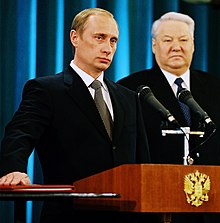
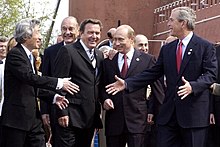

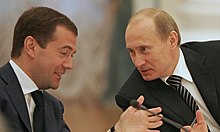




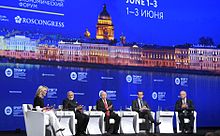


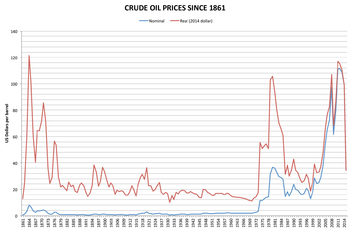
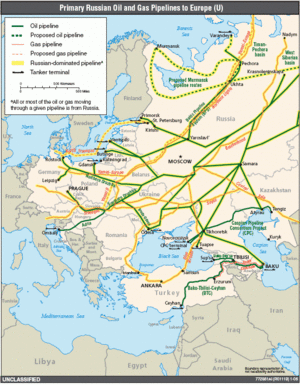


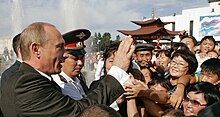


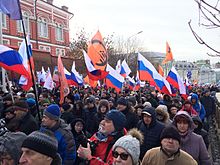





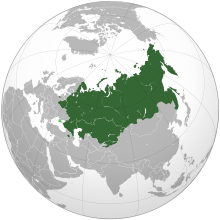
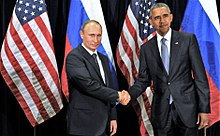









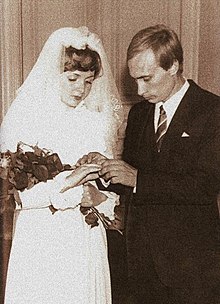
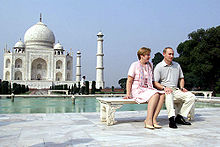


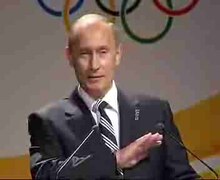
No comments:
Post a Comment